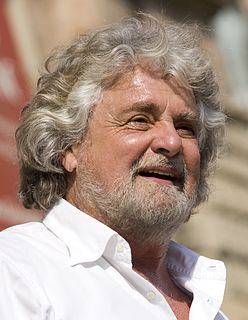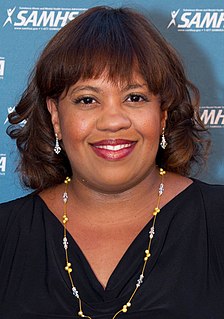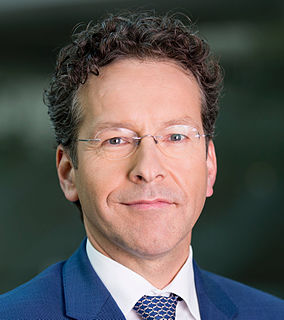A Quote by Steve Eisman
I have no negative stories about Deutsche Bank, period.
Related Quotes
What's the best gamble in the world, right now? Its betting that Deutsche Bank stock is going to go down. Short sellers borrowed money from their banks to place bets that Deutsche Bank stock is going to go down. Now, it's wringing its hands and saying, "Oh the speculators are killing us." But it's Deutsche Bank and the other banks that are providing the money to the speculators to bet on credit.
The World Bank is the monopoly provider of poverty data and, partly due to a leadership change there, the World Bank's reporting has been heavily on the rosy side since about 2000. The Bank's cultivation of an upbeat picture affords a very interesting lesson in statistics and how you can, depending on which numbers you present and how you present them, create a more positive or more negative impression of the evolution of poverty.
What we've done last night is what I call pushing back the risks..If there is a risk in a bank, our first question should be 'Okay, what are you in the bank going to do about that? What can you do to recapitalise yourself? If the bank can't do it, then we'll talk to the shareholders and the bondholders, we'll ask them to contribute in recapitalising the bank, and if necessary the uninsured deposit holders.
My big "double-aha" moment came while anchoring the national news at CBS News. It was at the height of the recession, and on top of the usual negative stories, my newscasts became full of especially heart wrenching stories of people losing their homes, jobs, and retirement savings. Starting the morning off like that could leave even the most optimistic person feeling helpless and hopeless. The lightning bolt came when we changed how we talked about the negative.
I don't want to pick on Deutsche Bank, but I think the world of the regulated financial conglomerate, it is a strange thing. There is nothing in common between writing checks and running branch offices, issuing credit cards - those are good businesses, but they really have zero in common with M&A advice. They're a different customer.
In truth, it's not the shareholders of the American International Group who benefited most from its bailout; they were mostly wiped out. The great beneficiaries have been the creditors and counterparties at the other end of A.I.G.'s derivatives deals - firms like Goldman Sachs, Merrill Lynch, Deutsche Bank, Societe Generale, Barclays and UBS.































